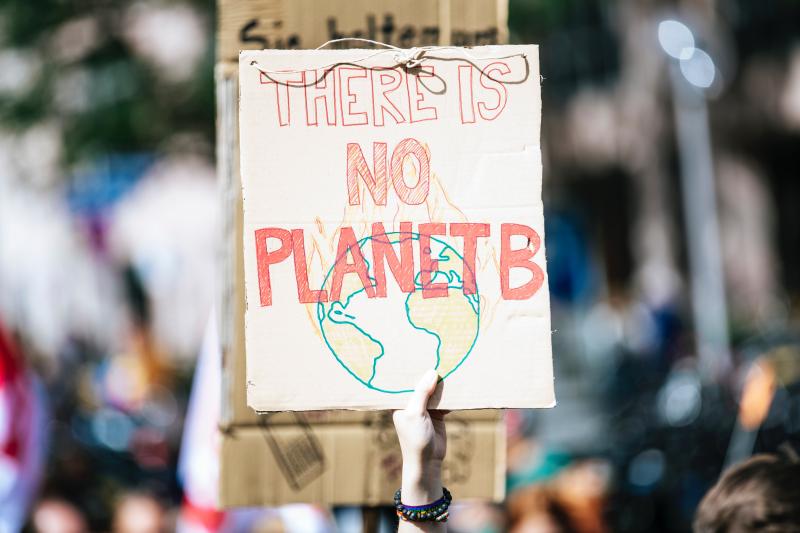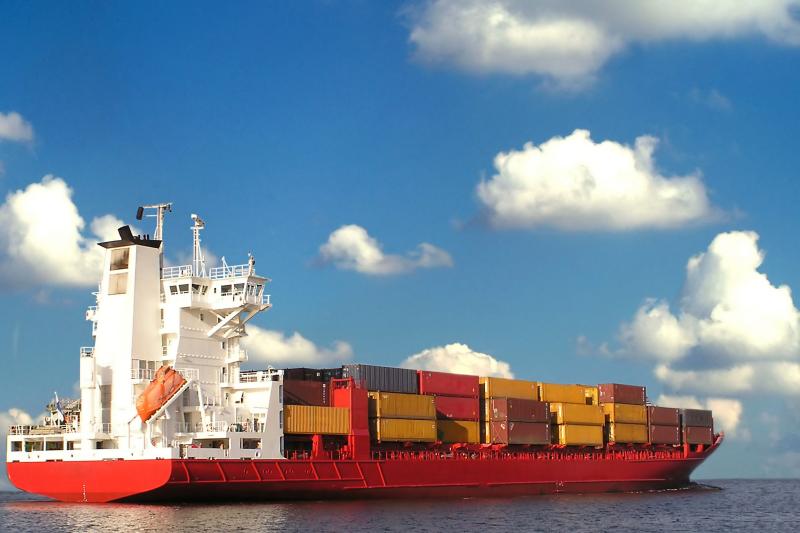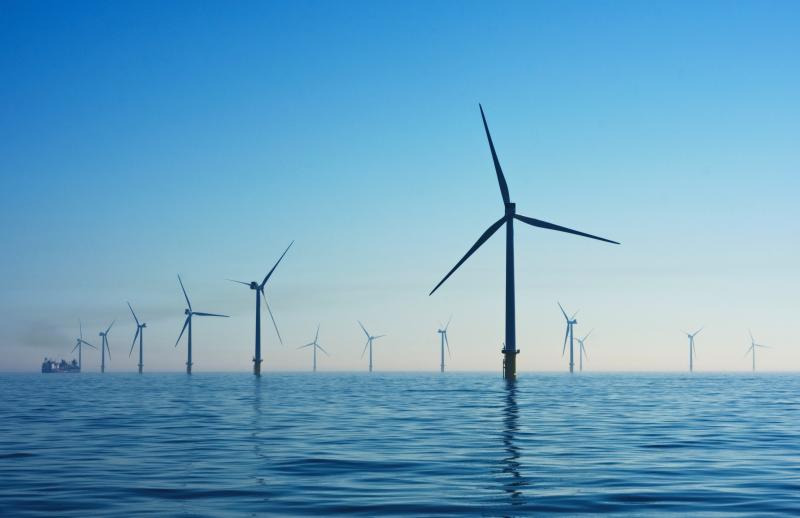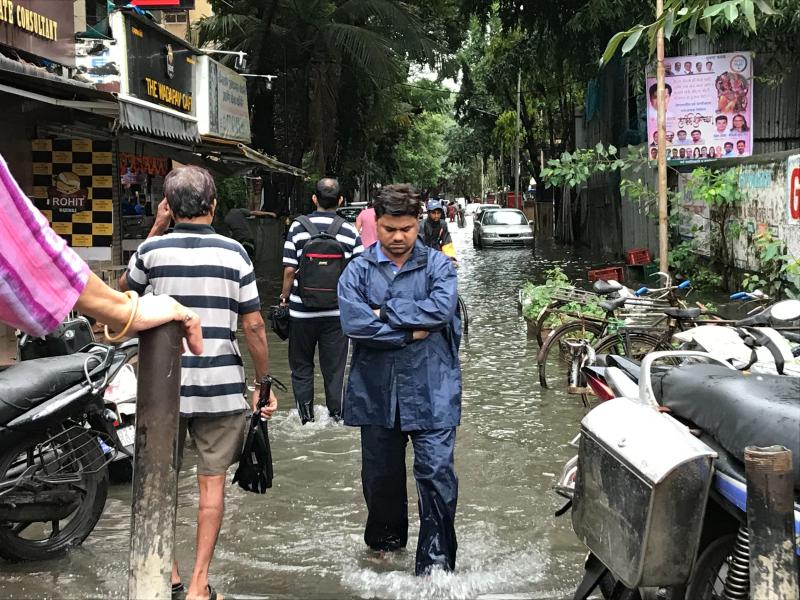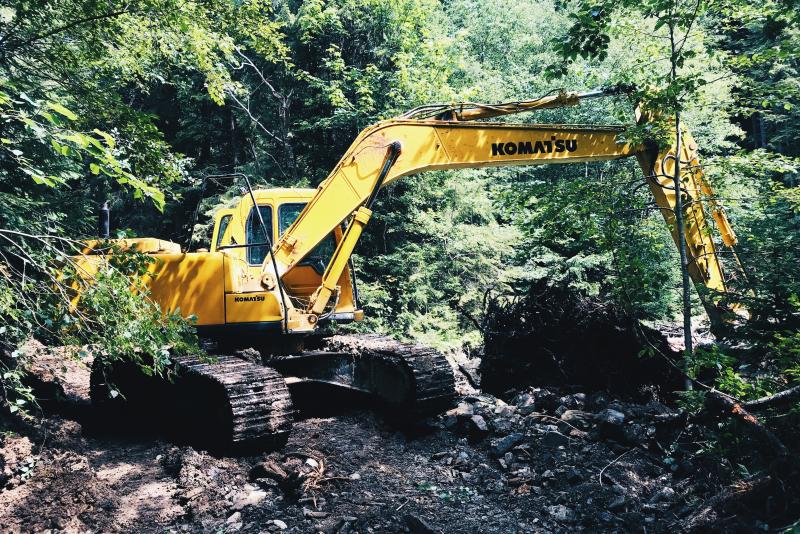Kierra Box, Trade campaigner06 Nov 2019
Climate change hit the big time in 2019
It began with outrage over oceans of single-use plastic. Spring, which had promised only Brexit, instead delivered school strikes and mass protests about the climate emergency in the UK and abroad.
By summer, we’d witnessed not just a massive growth in concern, but actual promises of action – with declarations of a climate emergency at national and local level. Since then the race for a net-zero UK (by 2050… or 2045… or 2030) has hotted up, with the debate moving from theory to practice, as organisations in the US and UK set out visions of a “Green New Deal”1.
But what is the climate emergency? Can a net zero UK or a Green New Deal save us from it?
If there is a climate emergency, the UK will need to make a huge and rapid shift in the way we live and do business.
So far, the government and business response to this emergency has been framed around capturing, rather than cutting emissions as a path to net zero. But this focus on “net” emissions (ie those we produce minus those that are stored or otherwise cleaned up) can be a bit unhelpful. It allows corporations and politicians to talk about saving the planet, without mentioning sacrifices like producing or consuming less. It lets us imagine our homes, businesses and power stations can continue spewing out climate-damaging emissions, albeit at a slower rate, as long as the government finds ways of ensuring that our overall emissions even out.
To some, balancing the books means using carbon capture and storage to trap emissions underground. We’re not convinced. Call us crazy, but at Friends of the Earth we reckon if you’re looking for cheap ways to lock carbon away, you can’t beat a tree. So for now, let’s ignore the idea we can stick to business as usual and confine climate change to some kind of underground lair – and support natural carbon sinks, like trees and peat bogs, instead.
But the key will be cutting, not just balancing. As a nation the UK can’t hit zero – even net zero – by increasing our climate impact. If you want emergency improvement, not just a standstill, you can’t simply continue creating bad stuff – like car exhaust fumes – and do an equal amount of good stuff – like tree planting – to off-set or make up for it.
So dramatic cuts to our climate wrecking emissions will need to accompany all this tree planting and eco-system restoration. This is going to mean changes for all of us – consumers, workers and communities here and abroad. The question is, are these changes ones we’re willing to bear? And how can we make sure the burden of dealing with the crisis is shared equitably between different nations and people?
We need to cut emissions - not sweep them under the carpet
A net-zero UK could mean sending all our production offshore and buying more products from around the globe, thereby offloading our emissions onto other countries. That way we could all feel great about ourselves while blaming the factories of Taiwan2, farms of Argentina3 or rubbish dumps of Indonesia4 for all their emissions. But moving emissions and environmental impacts around is not the same as cutting them. We can’t stick climate change behind the sofa and hope we move out before it goes mouldy.
But other kinds of action… well, they’re hard, and they mean fundamentally changing the way we do things.
Real net zero starts at home
Cutting emissions in the UK definitely means consuming less. But it also means changing the types of energy we use and how they’re produced. That’s the initial challenge – how do we start making rapid progress towards net zero without doing what we’ve always done and dumping the blame elsewhere. And how do we do it without breaking the bank?
Solution: use less
First, as a nation, we should broaden our understanding of cutting consumption – to include not just reduction, but reuse and recycling, along with more efficient home heating and cars. The government will have a major role to play in supporting better public transport, getting polluting vehicles off the roads, and building more energy-efficient homes.
Solution: go renewable
Then we should move wholesale from dirty coal and gas to electricity (which we’ll need to produce 100% renewably). Friends of the Earth has laid out proposals to shift towards tried and tested, cheap renewables – like solar and offshore wind – and support the growth of associated approaches, like onshore wind and decentralised energy.
The UK could also lead on developing some of the more challenging and costly ideas – like wave or tidal power – to make them cheaper and more workable in practice. And our research community could help work out how to store renewable energy in batteries more effectively (although as you’ll see below, batteries cause problems of their own).
The key is equity
Next, the UK must make sure that none of these changes unjustly transfer the burden from “us” to “them” (whoever and wherever “they” are).
We won’t get a net-zero UK without fairness at home – and, to be fair, politicians understand that any proposal to slash our contribution to climate change mustn’t result in poverty or unemployment. The message that it also can’t result in more inequality is even beginning to get some purchase in Parliament. Some parties are redefining calls for a “green industrial revolution” (with all the connotations of the first industrial revolution’s inequality and exploitation) and adopting support for a Green New Deal instead5. The suggestion here is that domestic action to tackle climate change doesn’t just mean going green, but doing it in a way that supports the poorest, tackles disadvantage and provides jobs – as the US New Deal of the 1930s aimed to do.
It’s easy to set out how this could work in headline terms – workers in the fossil fuel sector could move into renewable generation, those in heavy industry and high-carbon tech into new, decarbonised industries, and the innovative new products needed to capture and use renewable power more efficiently are created.
Businesses with dodgy supply chains based on exploitation or pollution could work to improve them. People in areas with low employment could become the producers of local food, coordinators of local reuse and recycling networks, or installers of new cooperative energy projects. And to support the rest of us to make the transition to a low-carbon economy, we’ll need an army of tradespeople who can fit social and council homes with heat pumps rather than boilers, improve insulation and improve local infrastructure, so we can all cook, heat our homes and travel cheaply and sustainably.
How to guarantee equity at home
This will all be more difficult in practice. It’ll need massive investment in helping people move to new industries, re-skill and develop new research and technology partnerships. It’ll need diversion of funding from fossil fuels to sustainable tech and renewables solutions. It’ll need government support for sustainable businesses so they can pay workers well and act responsibly, without being imperilled by undercutting from polluters. But all of this, while hard, isn’t going to be as difficult as governing a future UK experiencing the economic and social impacts of climate chaos.
A really fair UK transition would also make sure that no one need pay more for goods that are sustainable and ethically produced, from food to mobile phones to energy – so even people with the lowest incomes could avoid contributing to the climate emergency. That doesn’t mean that other people, in other societies and in other parts of the world, should face the same dilemma either – or be hit with the impacts of our own transition. We already know that the people who’ve played the least part in creating the emergency we face are the most likely to be feeling its impacts now, and to struggle the most in decades to come.
Why consider equity abroad?
There are many well-rehearsed arguments for why the UK should consider the rest of the world. But the focus is often less on the common good and more on inward looking and sometimes divisive concerns. For example, we could power our economy by flogging other nations our renewable tech, decrease the risk of increasing numbers of climate refugees heading for the UK, lessen future aid budgets, and limit the amount we need to cut our own emissions. But let’s forget all those ‘incentives’ and just have some humanity. From East Anglia to Angola, Cornwall to Cambodia, people are people, and we should all be working together to make everyone’s lives better. Even when it doesn’t directly or immediately benefit us financially or politically. But just because, well, who wants to go to all this effort to keep the planet and its inhabitants going, if our only aim is to top some kind of league table of selfishness?
The industrial revolution was built on the shoulders of those least able to benefit from its gains. And not just in the UK, where over successive decades we’ve seen everyone from handloom weavers to coal miners get the short end of the stick in the name of progress, but around the world. European and (later) North American powers relied on exploiting the natural resources and people of other nations to provide the materials and workers to extract resources from the ground and fuel our factories. This can’t happen again. But how do we stop it?
A globally just transition
Global justice: the problem today
It’s not just these historical inequities that have led to global injustices. A lot of the goods and services we now rely on, from online services and cloud storage to smart phones, from laptops and portable tech to batteries and components for wind and solar farms, rely on rare natural resources that predominantly come from the global south6. It’s predicted we’ll need to double the amount of cobalt mined globally by 2025 to meet the expected demand for new batteries7, even before we throw a more rapid transition away from fossil fuels into the mix. And right now, many minerals (including cobalt) are mined by exploitative companies, using child labour and operating on land stolen from indigenous communities8. Many minerals are in danger of running out. Many cause massive natural devastation or pollution in their extraction and processing9.
So is that it then? The end of our great dreams of averting climate chaos? Do we as a nation have to make a choice between fighting for the rights of communities around the world or fighting against the climate emergency? Is a net-zero future impossible unless it’s built on the crumbling remains of other people’s health, livelihoods or autonomy? Call me an optimist, but I don’t think this a choice between child labour and climate change.
Global justice: the solutions
The UK could combine real commitment to reusing the rare resources we’ve come to value with a shift to buying and producing new goods in ways that respect people’s rights - and invest in research of alternative, sustainable materials. This wouldn’t just save acres of drawer space currently occupied by old, cobalt-packed mobile phones – it could also cut the costs of goods and create new jobs for people here. And it could do so while protecting and enhancing the lives of others too.
The government can do this by bringing in a new approach to company behaviour in the UK, and taking it global. Firstly, it’ll need to cut the UK’s overall “footprint” – the impact our actions and consumption have on the rest of the world - by cleaning up our act abroad. This means highlighting supply chains that contribute to human rights violations, social and environmental damage, and climate-damaging emissions – and prioritising righting the wrongs the UK continues to inflict around the world.
To do this, the government must increase regulations on UK companies operating overseas, removing provisions in our trading arrangements that give businesses unfair control over environmental and social regulation in other parts of the world, and passing a new UK “duty of care” law which punishes businesses for flouting the rights of others or putting our environment in danger. Then UK representatives must champion similar action at a global level, with active support for a global “binding treaty”10, allowing anyone anywhere to hold businesses to account for trampling on their rights, and reform of the World Trade Organisation to place environmental and social needs above those of the market.
The government must also get holistic, by aligning UK aid, public and private investment abroad. This would prevent counterproductive actions, like subsidising fossil fuel projects in other countries with public money, or helping nations develop soon-to-be obsolete fossil fuel tech instead of sharing expertise on renewables. And it must put community leadership and local solutions ahead of big money and big tech.
The Department for International Trade must set out a transparent approach to developing and scrutinising future trading relationships, ensuring environmental and social aims dictate who the UK will look to trade with, and how. And it must ensure that all social and environmental commitments are monitored and enforced in binding agreements, not unenforceable chapters of a trade deal – and ditch trading partners who can’t keep to the deal. In new and rollover trade deals, negotiators must cut out mechanisms like Investor State Dispute Settlements, which allow foreign businesses to take governments to court for legislating to protect people or the environment.
And finally, our government must take a strong line against nations that give free rein to deforestation, emissions and chemicals use, and instead link trade deals to respect for the Paris Agreement. That means no deal with a US that is taking steps to leave the Paris Accord11. By doing so, the UK can proudly head into next year’s climate talks, with a vision of global Britain based not on injustice, exploitation and deregulation – to say nothing of divisive visions of an isolationist, post-Brexit UK – but on which both emissions and inequality are finally moving towards zero.
- 1For examples of various Green New Deal proposals in the UK, see UKSCN at https://ukscn.org/the-green-new-deal/, the New Economics Foundation at https://neweconomics.org/campaigns/green-new-deal, Common Wealth at https://common-wealth.co.uk/Road-Map-to-a-Green-New-Deal-From-Extraction-to-Stewardship.html. For details of proposals elsewhere, see the US proposal at https://www.nytimes.com/2019/02/21/climate/green-new-deal-questions-answers.html, Greenpeace International at https://www.greenpeace.org/international/story/22089/why-the-whole-world-needs-a-green-new-deal/, or the Canadian pact of a Green New Deal at https://greennewdealcanada.ca/.
- 2https://www.rug.nl/ggdc/docs/session3_ruedacantuche_paper.pdf
- 3https://www.grain.org/article/entries/5976-emissions-impossible-how-big-meat-and-dairy-are-heating-up-the-planet
- 4https://theaseanpost.com/article/indonesias-plastic-waste-problem-0
- 5Labour: https://www.newstatesman.com/politics/uk/2019/09/labour-conference-overwhelmingly-backs-green-new-deal Green party: https://policy.greenparty.org.uk/record-of-policy-statements.html
- 6https://www.theverge.com/2019/2/15/18226210/energy-renewables-materials-mining-environment-neodymium-copper-lithium-cobalt
- 7https://www.woodmac.com/news/editorial/the-cobalt-conundrum/
- 8https://www.amnesty.org/en/latest/news/2018/05/phones-electric-cars-and-human-rights-abuses-5-things-you-need-to-know/
- 9https://www.wired.co.uk/article/lithium-batteries-environment-impact
- 10https://bindingtreaty.org/
- 11https://www.bbc.co.uk/news/world-us-canada-50165596



